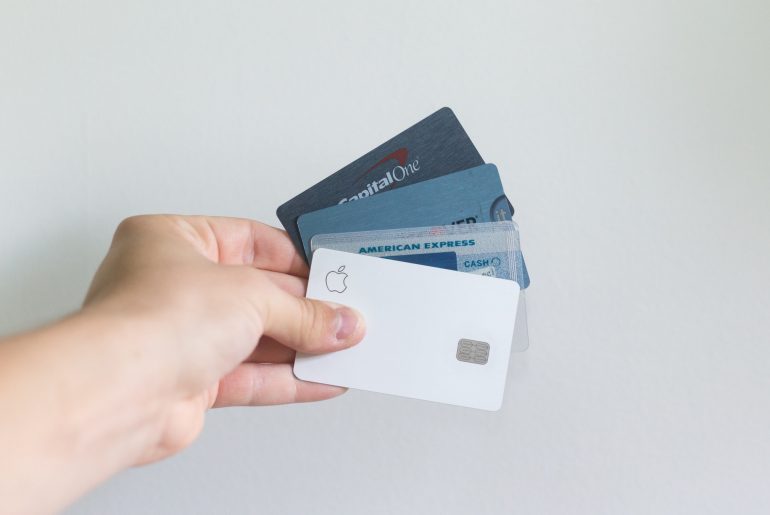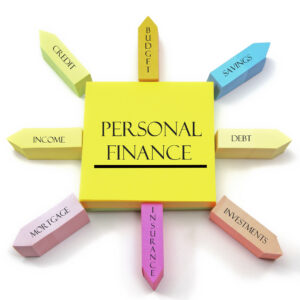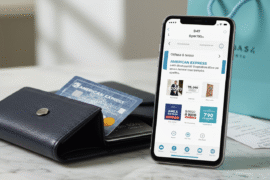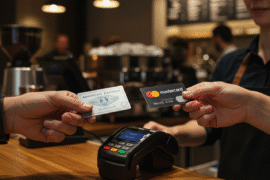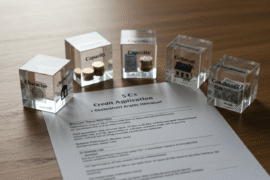This article may contain references to products or services from one or more of our advertisers or partners. We may receive compensation when you click on links to those products or services. Nonetheless, our opinions are our own.

Updated by Albert Fang
What would you do with extra money? Buy that $600 pair of Golden Goose sneakers you’ve had your eye on? Buy two Peloton bikes so you and your significant other can spin together in sync?
A cash-back card can help you earn extra money, ideally for shopping you were planning to do anyway. Keep reading to find out more about how to get the most out of your cash-back card—so you can have extra funds for the things you want, instead of breaking the bank and having to consolidate credit card debt.
What’s a cash-back card?
A cash-back card is a type of rewards credit card that pays back a certain percentage of the amount you spend in cash. For example, if a card has a 1% cash-back rate, you would earn $.01 for every dollar spent.
How to pick the best cash-back card for you
To pick the best cash-back card for you, it’s important to think about your lifestyle and spending habits. For example, some cards will give you cash back for travel. If you frequently fly or stay in hotels for work, this type of card might be the best choice for you. Or, if you love to eat out, you may want a cash-back card that gives you money back at restaurants. Pay attention to what categories certain cards focus on, and if the card has rotating bonus categories throughout the year.
3 things to consider in a cash-back card
Here are 3 things to think about when picking a cash-back card:
1. APR
Your APR is the yearly or annual interest rate on your card. You won’t have to worry about interest charges if you consistently pay your balance in full. However, if you carry a balance month to month, the amount you owe in interest can quickly skyrocket.
2. Fees
Some cash-back cards have yearly fees in exchange for higher cash-back rewards. If it looks like the cash back you’ll earn will be greater than the annual fee, the fee might be worth it for you. Make sure to read about any late payment fees that you could accrue if you miss a payment or pay late, as well as foreign transaction fees.
3. Sign-up bonus
A generous sign-up bonus might be an incentive to sign up for a card, but be sure to look into the details. For example, you may need to spend a certain amount within a specific time frame. If you’re not planning to spend that amount of money, the sign-up bonus isn’t really a perk because you won’t spend enough to get it.
How to redeem cash-back rewards
Different issuers have different ways you can cash out your points, including:
Donating to charity
Receiving a direct deposit
Applying rewards to your balance, and more.
Make sure you understand your different redemption options ahead of time.
Types of cash-back cards
There are different types of cash back cards, including:
Flat rate: Flat-rate cards offer the same amount of cash back, no matter where you shop or how much you spend.
Rotating categories: Some cards having rotating categories that you can earn more cash back on every quarter.
Different amounts depending on the category: Some cards offer higher reward amounts in certain categories of purchases.
When a cash-back card might be a good choice
A cash-back card might be a good choice for you if:
You can qualify for a card with a favorable interest rate, which usually involves having a good credit score.
You can pay your balance in full each month.
Your card offers high cash-back rewards in the categories you shop for most.
When a cash-back card might not be right for you
A cash-back card might not be the right choice for you if:
You can’t qualify for a good interest rate.
You have bad financial habits.
You need to spend more than you were planning to in order to qualify for the sign-up bonus or more rewards.
A cash-back card can be a great way to earn extra money, as long as you pick a card best suited to your needs and aren’t tempted to overspend to earn more. Happy shopping!

Reviewed and edited by Albert Fang.
See a typo or want to suggest an edit/revision to the content? Use the contact us form to provide feedback.
At FangWallet, we value editorial integrity and open collaboration in curating quality content for readers to enjoy. Much appreciated for the assist.
Did you like our article and find it insightful? We encourage sharing the article link with family and friends to benefit as well - better yet, sharing on social media. Thank you for the support! 🍉
Article Title: How to Get Most Out of Your Cashback Credit Card
https://fangwallet.com/2021/07/27/how-to-get-most-out-of-your-cashback-credit-card/The FangWallet Promise
FangWallet is an editorially independent resource - founded on breaking down challenging financial concepts for anyone to understand since 2014. While we adhere to editorial integrity, note that this post may contain references to products from our partners.
The FangWallet promise is always to have your best interest in mind and be transparent and honest about the financial picture.
Become an Insider

Subscribe to get a free daily budget planner printable to help get your money on track!
Make passive money the right way. No spam.
Editorial Disclaimer: The editorial content on this page is not provided by any of the companies mentioned. The opinions expressed here are the author's alone.
The content of this website is for informational purposes only and does not represent investment advice, or an offer or solicitation to buy or sell any security, investment, or product. Investors are encouraged to do their own due diligence, and, if necessary, consult professional advising before making any investment decisions. Investing involves a high degree of risk, and financial losses may occur including the potential loss of principal.
Source Citation References:
+ Inspo
